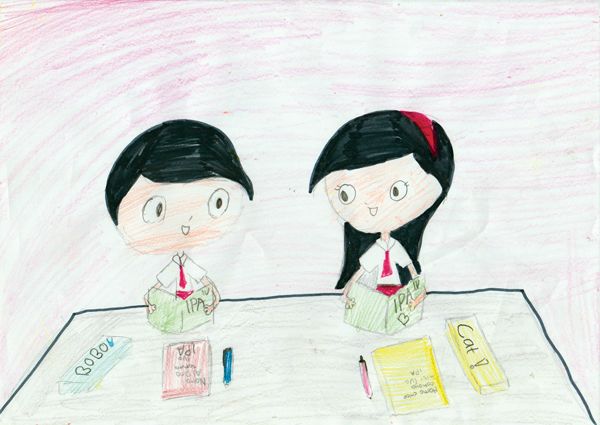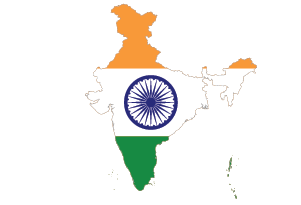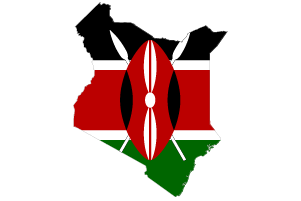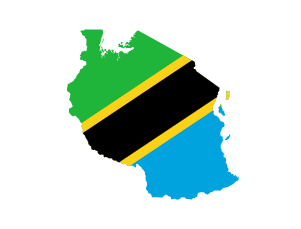Beyond the horizon
None are born prodigies, none are born scientists, but surely all are born to make the world a better place. It doesn’t matter who you are, where you are, which nationality you belong to, which sex you are. The world is a place for you to judge your own capabilities. None are born with more knowledge, none born with less. How well you tap into knowledge gives you your identity, and not the nation that you serve or the position that the materialistic world gives you.
Education is beyond borders, beyond judgement. Education is a mode of interpreting knowledge, a need that is required to grow beyond comparison. But education nowadays is a mode of pestering which rips off the final part of the great essence of knowledge that the student already pursues in the trail of her passion.
A knowledge of hope should quietly be passed on through the indulgence of interests that teachers cultivate in learners. A teacher has the capacity to mend the ability and capability of a child. She has the power to overthrow the world, proving that a child of special features can win over the world and can uproot the growing oak.
A child may excel in the performance of arts when liberated, but when made to lock down her dignity to be just proficient at wading through pages of text she loses interest gradually. A stockpile of work right behind her, chasing her, and troubling her, becomes her enemy. She is haunted by nightmares of stress, peer pressure, wakeless sleep. Her art fades, so does her identity.
Knowledge is something to be gained from education. Acquiring knowledge can be through any method; schooling and examination is just one and not the only way. Subjects are everywhere you turn. School is a place where you are taught a pint of world and a pinch of life.
The rest is a book yet to be written. School shows you the number of possible outcomes from you, not the innumerable impossibilities which – if you ask me – are still possible. It is just you who is to limit yourself. Disabilities are just bench marks put up by the materialistic world for YOU to break through; rules that have been set by people who have tried and quit.
A child is only limited by two things:
- The immature fear of parents who think what society will say of them if they find out they have a child who is not like the rest. What makes parents fail to see that their children are not the rest, they are special, they are born for a reason. Weed the seeds in them and watch them grow.
- The second are the teachers. Training a highly intelligent child to score 99% is not the real case that a teacher should claim acknowledgement for. The child who was left out by the world, train her instead. Stretch her beyond her possible thoughts in the field of her passion, and then sit back in the chair and feel proud about the applause that you own.
- Who said sky is the limit? Who limited infinity by naming it? You are born limitless. Grow limitless. Be the master to your student and student to your master. You don’t decide to be great, it decides you for the extraordinary things that you have achieved and trust me its right outside your comfort zone. You weren’t born to be a unicorn, you were born to be a wolf. Welcome to the pack!
N. Harshaavardhini, age 15, India
India
Capital: New Delhi
Official languages: Hindi & English
Population: 1,324,171,154
Out-of-school children: 2,886,000
Pre-primary enrolment: 12%
Editor’s thoughts
This paragraph intrigued me: “Education is beyond borders, beyond judgement. Education is a mode of interpreting knowledge, a need that is required to grow beyond comparison. But education nowadays is a mode of pestering…”
Education is treasured by everyone and that’s what makes this paragraph interesting, that no matter where you are in the world, education has value. Accessing education is another story, for now I will focus on the issue of passion, whether for or from education, that’s mentioned in the article. Synonyms of passion are excitement and delight. The word passion can be interpreted in various ways. Either you are passionate or not and there are things that can make you passionate. If something doesn’t make you passionate, it is not ‘your thing’. Education is everyone’s cup of tea, but it is how knowledge is delivered that can put off or attract the student to education. This assumption gives a platform to blame our education system for killing the passion and excitement of education.
Education these days leaves no room to be delighted; just like the article says “education nowadays is a mode of pestering”. I couldn’t agree more. The purpose of education has shifted for generations and it feels like the more our society becomes advanced, the less education is centred on children. The aim of our education is to groom young people for the workforce, both nationally and internationally, in order to sustain our economy and society overall. It’s contradictory how there is excitement about future generations having the best universities, best chances of competing in the global market yet somehow we can’t transfer this passion to our schools, the starting point of the vision. Unquestionably, young people are the future and we need them, but somehow our actions (a growing focus on exams, school funding cuts, overcrowded classrooms, etc.) are diminishing the dream for our future generation. Our education system is the true meaning of autocracy controlled by elites. It’s their way or no way and we expect young people to excel in such a biased system. When an institution doesn’t consider factors like socio-economic status and impact of individualism it shows plain ignorance by those governing it.
Diana De Cendres Khasa, age 24, graduate, University of Manchester, UK
Education changes lives
Education is not only for children but for the old and young… People being educated makes them in future to be presidents, doctors, nurses, managers and other work that you can do apart from stealing, killing and doing robbery. We may change our life when we are educated.
Lourimesally Akinyi, age 13, Kenya
Government must help
The government should provide free schooling. This will make education better by adding more skills to students and pupils. When the government provides free schooling, it will be a good chance for the people with needs and disabilities to learn. They will be trained, taught and given more skills. This will make our future bright and our dreams come true. Education will make my life change by making me an important person in the society or community. It is also the key to success in my life. I can get good jobs when I have my school certificates. Many people benefit from their hard work and tolerance.
Maryann Anyanga, Kenya
Education for survival
Education is the way of teaching children how to read and write. Education is also the key of life. Without education we cannot survive in our daily lives… We live in slums, and the houses we are living in are no longer good. When it rains, dirty water enters in our houses and this may cause diseases. So, after getting good education our lives might change.
Alice Apiyo, age 12, Kenya
More resources needed
Education should be treated fairly. In private and government schools. Nowadays, you find that there is corruption in education. The government favour pupils who study in government schools more than private schools. You find that government properties like books are being delivered in government schools leaving behind private schools. More classroom should also be built. You find that in a class for forty pupils there are even more than seventy.
Joy Atieno, Kenya
Collaborate on improvements
For us to improve education, we must work as a team. We must write. Remember when we come together we become stronger. We should help each other to know the importance and benefits of education. If everybody gets educated the world will become a better environment to stay in. The world is not made up of one person but is made up of many people. Let us work together and improve education.
Davis Mwala, Kenya
There’s more to life than formal education
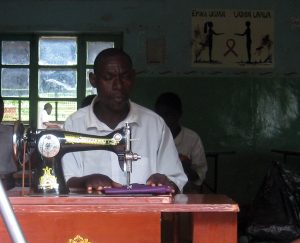
Education for me is necessary but I don’t believe it’s a measure of intelligence. Many in the present day are using education as a tool to intensify discrimination. This happens when those who acquire formal education overlook the unfortunate ones who fail to acquire it or perform badly hence referring to them as failures. For me formal education is a tool for success but not the only one. There are other options, apart from the white collar jobs associated with formal education. I have lots of friends who make money from skilled professions that do not necessarily require higher learning – like carpentry, mechanics, plumbing, shoe making, etc. If you look critically at society, such people are crucial and important. Imagine owning the most expensive car but there are no mechanics! Having the best house but no furniture because everyone is working in offices. I believe people have different abilities and are talented in different ways.
For those who don’t have access or who did not perform as well in school it doesn’t mean the end of life. Einstein said that “Everybody is a genius. But if you judge a fish by its ability to climb a tree, it will live its whole life believing that it is stupid”. Therefore, in a competition between an elephant, a fish, a crocodile, a chicken, and a monkey climbing a tree, when a monkey easily wins it doesn’t render the others useless, they are capable when given a favourable task and a suitable environment of their own. So education must reflect this.
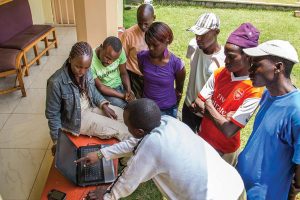
I did not get the best education, because of the circumstances I found myself in. I was born and grew up in an informal settlement as a total orphan. I was assisted by an organisation that ran a transition centre for street-connected children and they supported me to return to school. I did not score the highest grades to get into university but I found a sponsor to help me study to be a social worker. I have gained experience in community development and now I run a centre that gives hope to less fortunate children who live in the same informal settlement where I was born. Many of them aspire to become scientists, doctors, engineers and professors, which makes me smile. I know that it could be possible for them, but that there are many other options for them also. I did not give up when others thought I was a failure for not attaining the highest level of education and I have witnessed pupils and students committing suicide simply because they were thought of as ‘failures’ by their community. It is important that we set realistic targets while also supporting them to strive for their dreams.
Stanley Njuguna Kibue, age 24, Kenya
Education means ambitions and hard work
My name is Zahra. I am a 14-year-old girl. My class is Form II. I live with my parents. First, I would like to sincerely thank all those who are with me. My dream in life is to do well in my studies at all levels, because I love learning. I love the best achievements in my life. Education is a source of respect in the society. I can achieve my dream through my education.
My hope for my future is to get a medical education. I want to be a doctor because I want to help patients in the hospital. This has been my interest from a young age. A doctor helps the community wholeheartedly to have a happy life. She is willing to spend much of her time to help the community even if she has a family and has many needs.
I will make sure that I work hard to realise my dream. Education has many opportunities to help me. I will not learn for boasting about myself or for showing off, but I will learn for the purpose of reaching my dream. If I fail first time, I won’t be disappointed because I know one day my dream will come true.
My message is: Make sure you learn with clear goals. Make sure you learn for your future life.
Zahra Said, age 14, Tanzania
Editor’s thoughts
Lourimesally Akinyi’s views spoke out to me, but one statement in particular: ‘we may change our life when we are educated’. This may appear obvious or an over-exaggeration on the impact learning can have on an individual. But from my experience this statement speaks volumes. Prior to my current job I worked for a distance learning university. I spoke every day on the phone to students who had studied with us and wanted to continue to study more units or degrees. They would tell me with so much joy in their voices how they spent years and years in jobs they hated, jobs they felt underpaid in, jobs they saw no future in. And now having furthered their education they had managed to land their ‘dream job’. What stood out to me was that the job wasn’t a ‘dream’ because it was higher paid, it was a dream because it was exciting, related to their interests, kept them busy and continuously learning. And after every call it was apparent that the student would have not had the means, qualifications, nor confidence or skills to land that role without education. These were people fresh out of college, people with severe disabilities who wanted to achieve their dreams, carers and guardians who had previously put their education aside and now wanted to pursue it, mature people well into their 40s and 50s, and people who had come out of prison having spent their conviction time gaining qualifications. I’ve never valued education as much as I have listening to the voices of people whose lives it changed.
Faiza Khan, age 25, administrator in a UK university
